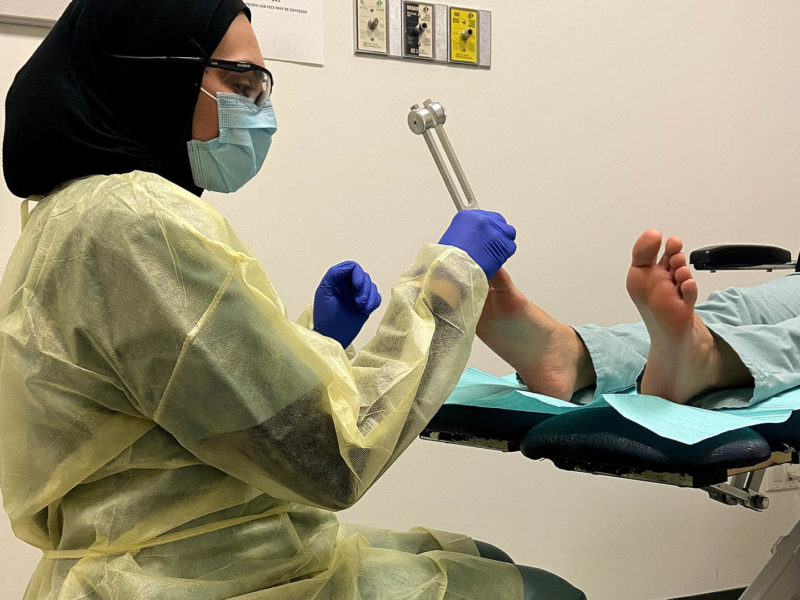Innovation Projects
Project
Tourism and Hospitality Emergency Recovery
The Tourism & Hospitality Emergency Recovery (THER) initiative, funded by the Future Skills Centre and led by the Ontario Tourism Education Corporation (OTEC), aimed to support Canada’s tourism and hospitality sector during and after the COVID-19 pandemic.
Project
Upskilling Program for Jobs in Digital Health and Data Analytics
The Michener Institute of Education at UHN in Toronto, Canada, conducted a comprehensive evaluation of its “Upskilling Program for Jobs in Digital Health and Data Analytics”, aimed at bridging the skills gap in healthcare professionals' proficiency with advanced digital and data-driven technologies.
Project
Upskilling/Reskilling Canada's Healthcare Workers
This project incorporated employers' insights into diabetes foot care qualifications, tailored educational pathways to meet clinician needs, and offered culturally sensitive training for Indigenous populations.
Project
Digital Transformation of Work: Racialized Immigrant Women and Skills Retraining
The digital transformation coming to Canadian workplaces accelerated significantly after the country-wide COVID-19 lockdowns, which increased demand for remote work. The digital transformation has and will hit some workers harder than others.
Project
North Forge Global Entrepreneurship Initiative
The North Forge Global Entrepreneurship Initiative aimed to address several key questions to enhance support for newcomers, particularly those involved in the Start-up Visa Program and highly qualified newcomers facing licensing barriers.
Project
Material Handling 4.0
Material Handling 4.0 (MH4.0) is a sector-based skills training program designed to prepare unemployed and underemployed individuals for roles in Canada’s goods movement industry.
Project
Innovation for Better Integration
The Innovation for Better Integration Project, which was conducted in Kingston, Ontario, aimed to address the challenges faced by newcomers in accessing services. The goal of the project was to collaboratively develop a new service provision model that would address the unique challenges of implementing traditional service approaches.
Project
AspireAtlantic
The AspireAtlantic program tested out the WorkAdvance model— a proven US workforce development strategy that uses a sector-based approach that combines job training, placement and advancement support for low-income individuals.
Project
Female Workers Facing the Challenge of Digital Transformation: A Case Study in the Insurance Sector
The outbreak of the COVID-19 pandemic accelerated digital transformation, leading to numerous changes in social interactions at work. To address this, the project focuses on how female workers in customer service roles who typically hold secondary or college-level education and work remotely for insurance companies in the Chaudière-Appalaches region of Québec are adapting to these changes.










